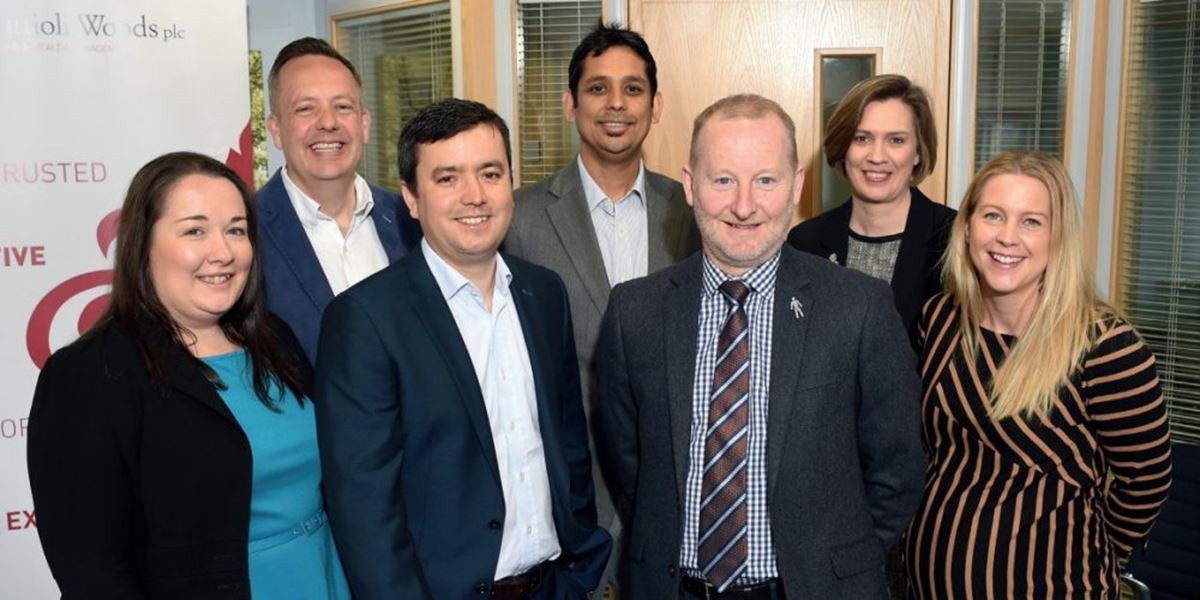We brought our expert panel to the Preston office of Taylor Patterson, part of leading UK consultancy Mattioli Woods, to get their views on how best to meet the challenges.

PRESENT: Richard Slater (chair) ~ Lancashire Business View • Rachel Dyer ~ University of Central Lancashire • Will Fletcher ~ Recycling Lives • Gabriela Hammond ~ VEKA • Vishal Jain ~ Fair Quid • Craig Hugo ~ Mattioli Woods • Reta Madgin ~ Farleys • James Sandwell ~ Sunshine Events
With skills at a premium, what tactics are available to businesses seeking to recruit the best?
Gabriela Hammond: Our factory is in an area of low unemployment so we are seeing real challenges in attracting people and the job market is tight. We’ve been looking at the employer brand and what VEKA stands for locally.If you’re competing for someone’s signature the package has to be there but the job seeker is also looking for something more: what does the company stand for, what does the brand mean in the local community? If it’s a positive view, that might be the difference.We also have 360 ‘brand ambassadors’ so if they’re shouting good things to their friends then you’ve crossed a huge hurdle.
Will Fletcher: We are lucky that we are bringing some incredible people and talent into the organisation. We’re here to be incredibly commercial and we are successful at that, but what draws people to us is our sense of purpose.The leaders we bring in, they are not just working on commercial projects, they’re working on how we expand the charitable programmes as well and put back directly into our community.
There are people who get frustrated if they’re just earning a wage every week and not actually contributing to the wider world in a way they would like to.James Sandwell: For us the biggest priority is culture, so that when we open our front door people feel the buzz. We want the right atmosphere all the way through and that goes for suppliers as well. We’ve got huge core values which we have all over our office.
We’ve gone away from things like CVs, we ask for a video interview because we recruit on personality and style that fits into our culture. We can train the rest.Reta Madgin: The main thing we try to get across is that we don’t just market ourselves as this wonderful employer when we’re recruiting; we try to do it all the time. We get so many speculative job applications because our staff go out and talk about what a good place it is to work.
Vishal Jain: It’s the benefit connect, providing something that people need and that in itself tells employees that the employer understands their needs and that is what they are giving.Gabriela Hammond: When you’re looking at a package to offer an employee it’s not just money anymore. It’s their lives and helping support them and their wellbeing because that could be the difference between them looking for another job or them being happy and engaged in their work.
Vishal Jain: Our recruitment is at opposite ends of the spectrum, people who are starting out in what is perhaps their first career and people with a lot of experience who we are trying to attract into a young start-up company.We recruited someone with lots of experience who had been in management positions and for him the attraction was the sense of purpose, adding value and making an impact.
He had a very successful career and money was not important to him. The same thing is important to millennials. Money is less an issue; it is about making an impact, doing something with a larger purpose or meaning.Enjoyed this? Read more from Ged Henderson






















